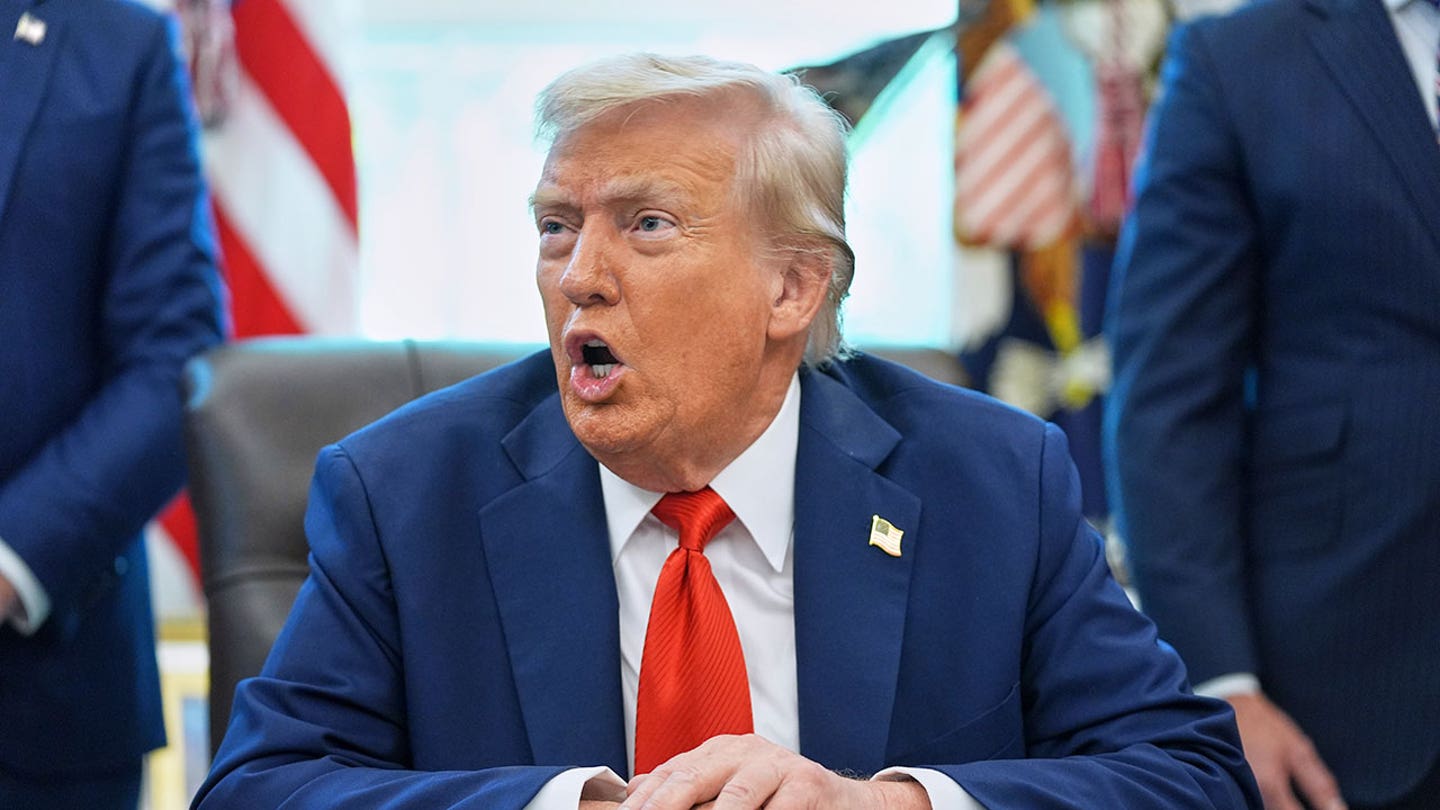
DHS juggles ‘mass deportation’ push with Helene relief, adds $124M after Biden backlash
Entities mentioned:
- Department of Homeland Security: Duty, Security, Control
- Kristi Noem: Ambition, Power, Recognition
- Donald Trump: Power, Competitive spirit, Recognition
- Joe Biden: Self-preservation, Righteousness, Legacy
- FEMA: Duty, Professional pride, Security
- Alejandro Mayorkas: Self-preservation, Control, Duty
- Chuck Edwards: Righteousness, Duty, Recognition
Article Assessment:
Credibility Score: 65/100
Bias Rating: 65/100 (Lean Right)
Sentiment Score: 35/100
Authoritarianism Risk: 45/100 (Mixed/Neutral)
Bias Analysis:
The article leans right, evidenced by more extensive coverage of Republican viewpoints and criticisms of the Biden administration. While it includes some counterpoints, the framing tends to favor conservative perspectives on the issues discussed.
Key metric: Disaster Response Effectiveness
As a social scientist, I analyze that this article highlights the complex interplay between disaster relief efforts and political motivations. The increased funding for Hurricane Helene relief, juxtaposed with the 'mass deportation' framework, reveals tensions in resource allocation and prioritization within DHS. The article exposes how natural disasters can become politicized, with different actors using the situation to criticize opponents or bolster their own image. The conflicting narratives between Trump and Biden administrations regarding the federal response demonstrate how disaster management can become a battleground for political credibility. This situation likely impacts the overall effectiveness of disaster response, as political maneuvering may influence resource distribution and public perception of relief efforts.

'Doctor Strangelove with a mustache': Bolton blasted for 'profiteering' off US secrets by White House advisor
Entities mentioned:
- Peter Navarro: Loyalty, Moral outrage, Indignation
- John Bolton: Ambition, Recognition, Greed
- Donald Trump: Power, Control, Loyalty
- FBI: Justice, Duty, Security
- Nicolas Maduro: Power, Self-preservation, Control
- Judge Royce Lamberth: Justice, Duty, Professional pride
Article Assessment:
Credibility Score: 65/100
Bias Rating: 65/100 (Lean Right)
Sentiment Score: 30/100
Authoritarianism Risk: 55/100 (Mixed/Neutral)
Bias Analysis:
The article leans right, primarily due to its reliance on criticisms from a Trump advisor and focus on potential wrongdoing by Bolton. While it includes some balancing information, the overall framing favors a conservative perspective on government secrecy and loyalty.
Key metric: National Security Integrity
As a social scientist, I analyze that this article highlights the tension between government secrecy and public disclosure in the context of national security. The raid on Bolton's residence and the subsequent criticism from Navarro underscore the potential risks to national security when former officials publish memoirs containing sensitive information. This situation impacts the National Security Integrity metric by potentially compromising confidential strategies and weakening trust within government circles. The article also reveals the complex interplay between personal ambition, loyalty to administration, and perceived duty to inform the public, which can have lasting effects on how sensitive information is handled in government positions.

Bolton may be in hot water as FBI investigation expands beyond controversial book
Entities mentioned:
- John Bolton: Self-preservation, Recognition, Influence
- FBI: Justice, Duty, Control
- Donald Trump: Power, Revenge, Control
- Department of Justice: Justice, Duty, Control
- Mark Zaid: Professional pride, Duty, Influence
- Bill Barr: Loyalty, Duty, Control
- Judge Royce Lamberth: Justice, Duty, Security
- Biden administration: Justice, Control, Influence
- CIA: Security, Duty, Control
- Letitia James: Justice, Ambition, Duty
- Adam Schiff: Justice, Duty, Influence
- Tulsi Gabbard: Justice, Influence, Duty
- Chris Christie: Self-preservation, Ambition, Influence
- John Fishwick: Professional pride, Justice, Influence
- Jason Kander: Professional pride, Justice, Influence
Article Assessment:
Credibility Score: 65/100
Bias Rating: 55/100 (Center)
Sentiment Score: 30/100
Authoritarianism Risk: 65/100 (Authoritarian Tendencies)
Bias Analysis:
The article presents multiple viewpoints and cites various sources, including legal experts from different political backgrounds. However, there's a slight lean towards framing the investigation as potentially politically motivated, which nudges it slightly right of center.
Key metric: Rule of Law Index
As a social scientist, I analyze that this article highlights potential politicization of the justice system, which could significantly impact the Rule of Law Index. The expanded investigation into John Bolton, coupled with probes into other Trump critics, raises questions about the impartiality of the DOJ. This situation tests the balance between legitimate law enforcement and political retribution, potentially eroding public trust in legal institutions. The financial burden of legal defense, even without conviction, serves as a deterrent to political opposition, which could have a chilling effect on free speech and democratic processes. The article's discussion of classified information handling also underscores the tension between national security concerns and transparency in government, a crucial aspect of maintaining a strong rule of law.

Fighter pilots take directions from AI in Pentagon’s groundbreaking test
Entities mentioned:
- U.S. Fighter Pilots: Duty, Professional pride, Security
- Pentagon: Security, Competitive spirit, Influence
- Air Force: Security, Professional pride, Competitive spirit
- Navy: Security, Professional pride, Competitive spirit
- Raft AI: Ambition, Innovation, Recognition
- Shubhi Mishra: Ambition, Recognition, Influence
- Federal Aviation Administration (FAA): Security, Duty, Professional pride
- National Transportation Safety Board: Duty, Security, Professional pride
Article Assessment:
Credibility Score: 75/100
Bias Rating: 55/100 (Center)
Sentiment Score: 65/100
Authoritarianism Risk: 35/100 (Generally Democratic)
Bias Analysis:
The article presents a balanced view of the AI technology, discussing both its potential benefits and ethical concerns. While it leans slightly towards emphasizing the positive aspects, it also includes cautionary notes about human involvement in critical decisions.
Key metric: Military Technological Advantage
As a social scientist, I analyze that this article highlights a significant advancement in military technology, specifically in air combat management. The integration of AI into fighter pilot operations represents a potential paradigm shift in warfare strategy. This development could dramatically enhance the U.S. military's decision-making speed and accuracy in air combat scenarios, potentially providing a substantial edge over adversaries. However, it also raises ethical questions about the role of AI in life-or-death decisions and the future of human involvement in combat operations. The test's success suggests a trend towards increased AI integration in military operations, which could have far-reaching implications for national defense strategies, international military dynamics, and the nature of future conflicts. The emphasis on maintaining human oversight indicates a cautious approach to this technological integration, balancing innovation with ethical considerations.

Walz' Minnesota may be next as ICE detention footprint grows nationwide
Entities mentioned:
- Tim Walz: Duty, Moral outrage, Security
- ICE (Immigration and Customs Enforcement): Control, Security, Duty
- CoreCivic: Greed, Influence, Professional pride
- Donald Trump: Control, Security, Power
- Gavin Newsom: Moral outrage, Justice, Control
- ACLU: Justice, Freedom, Moral outrage
Article Assessment:
Credibility Score: 70/100
Bias Rating: 65/100 (Lean Right)
Sentiment Score: 35/100
Authoritarianism Risk: 55/100 (Mixed/Neutral)
Bias Analysis:
The article leans slightly right, evident in its focus on ICE expansion and use of language like 'rendered obsolete' for private prison bans. It presents multiple viewpoints but gives more weight to pro-enforcement perspectives.
Key metric: Immigration Enforcement Capacity
As a social scientist, I analyze that this article highlights a growing trend of ICE expanding its detention capacity across the United States, potentially including Minnesota. This expansion reflects a broader shift in immigration policy and enforcement strategies. The repurposing of private prisons for ICE detention centers raises questions about the privatization of detention facilities and its implications for detainee treatment and rights. The article also underscores the tension between federal immigration policies and state-level opposition to private prisons, as seen in California and Minnesota. This expansion of ICE facilities could significantly impact the country's ability to detain and process immigrants, potentially affecting both legal and illegal immigration rates, as well as public perception of immigration enforcement.

US ally summons Trump ambassador over 'unacceptable' antisemitism allegations
Entities mentioned:
- Charles Kushner: Righteousness, Moral outrage, Loyalty
- France: Self-respect, Justice, Unity
- Emmanuel Macron: Duty, Justice, Security
- United States: Loyalty, Influence, Power
- Hamas: Power, Revenge, Control
- Israel: Security, Self-preservation, Justice
- Benjamin Netanyahu: Power, Security, Self-preservation
- Donald Trump: Loyalty, Power, Influence
Article Assessment:
Credibility Score: 75/100
Bias Rating: 55/100 (Center)
Sentiment Score: 30/100
Authoritarianism Risk: 35/100 (Generally Democratic)
Bias Analysis:
The article presents both US and French perspectives, quoting official statements from both sides. While it provides context about Kushner's background and Trump's support for Israel, it maintains a relatively balanced approach in reporting the diplomatic incident.
Key metric: US-France Diplomatic Relations
As a social scientist, I analyze that this incident represents a significant strain in US-France diplomatic relations. The summoning of an ambassador is a serious diplomatic action, indicating France's strong disapproval of Kushner's allegations. This conflict stems from differing perspectives on addressing antisemitism and the Israel-Palestine conflict. The US backing of Kushner's comments, despite France's objections, further complicates the situation. This disagreement could potentially impact cooperation on other international issues and weaken the transatlantic alliance. The incident also highlights the complex interplay between domestic politics, international relations, and personal connections in diplomacy, as evidenced by Kushner's familial ties to former President Trump.

Democrats opposed John Bolton for years — until they sought him as an ally against Trump
Entities mentioned:
- John Bolton: Power, Influence, Professional pride
- Democrats: Political advantage, Justice, Moral outrage
- Donald Trump: Power, Control, Self-preservation
- Joe Biden: Duty, Justice, Competitive spirit
- George W. Bush: Power, Legacy, Security
- Adam Schiff: Justice, Duty, Competitive spirit
Article Assessment:
Credibility Score: 75/100
Bias Rating: 55/100 (Center)
Sentiment Score: 40/100
Authoritarianism Risk: 35/100 (Generally Democratic)
Bias Analysis:
The article presents multiple perspectives and historical context, showing a relatively balanced approach. However, there's a slight lean towards framing Democrats' actions as opportunistic, which could be interpreted as a center-right perspective.
Key metric: Political Polarization Index
As a social scientist, I analyze that this article highlights the complex and shifting nature of political alliances in the United States. The Democrats' evolving stance on John Bolton demonstrates how political motivations can override ideological consistency. This case study in political polarization shows how figures can be vilified or embraced based on their utility in opposing a common adversary, in this case, Donald Trump. The article underscores how the impeachment process and subsequent events have deepened partisan divides, with both sides willing to realign their allegiances for political gain. This flexibility in political positioning, while potentially pragmatic, may contribute to public cynicism about political consistency and principle, potentially eroding trust in democratic institutions.

‘Bold’ general who led US’ ‘Midnight Hammer’ strikes on Iran ends Middle East reign
Entities mentioned:
- Gen. Michael 'Erik' Kurilla: Duty, Professional pride, Determination
- U.S. Central Command (CENTCOM): Security, Control, Influence
- Pete Hegseth: Loyalty, Patriotism, Recognition
- Adm. Brad Cooper: Duty, Ambition, Professional pride
- Iran: Self-preservation, Power, Defiance
Article Assessment:
Credibility Score: 75/100
Bias Rating: 65/100 (Lean Right)
Sentiment Score: 65/100
Authoritarianism Risk: 35/100 (Generally Democratic)
Bias Analysis:
The article leans slightly right, evident in its positive portrayal of military action and leadership. The use of quotes from conservative figures like Pete Hegseth and the emphasis on strike operations indicate a pro-military stance typical of right-leaning media.
Key metric: Military Readiness and Projection of Power
As a social scientist, I analyze that this article highlights the changing of guard in U.S. Central Command, emphasizing the strategic importance of the Middle East in U.S. military operations. The focus on Gen. Kurilla's career and recent operations against Iran and Houthi rebels underscores the ongoing tensions in the region and the U.S.'s readiness to engage in military action. The transition to Adm. Cooper suggests continuity in strategy and approach. This leadership change and the highlighted operations impact U.S. military readiness and power projection by demonstrating operational capabilities and commitment to regional allies, while also potentially escalating tensions with adversaries like Iran.

Bolton unleashes on Trump Ukraine policy days after FBI raid
Entities mentioned:
- John Bolton: Revenge, Self-preservation, Justice
- Donald Trump: Power, Recognition, Legacy
- FBI: Duty, Justice, Security
- Vladimir Putin: Power, Control, Influence
- Pentagon: Security, Control, Professional pride
Article Assessment:
Credibility Score: 65/100
Bias Rating: 55/100 (Center)
Sentiment Score: 30/100
Authoritarianism Risk: 35/100 (Generally Democratic)
Bias Analysis:
The article presents multiple viewpoints, including criticisms of Trump's policies, but relies heavily on Bolton's perspective. While it includes some factual reporting, the emphasis on Bolton's critique slightly tilts the balance, though not significantly enough to be classified as partisan.
Key metric: International Relations and Diplomacy
As a social scientist, I analyze that this article highlights significant tensions in U.S. foreign policy, particularly regarding Ukraine and Russia. Bolton's critique of Trump's approach suggests a lack of coherence and strategy in diplomatic efforts, potentially weakening the U.S. position on the global stage. The reported FBI raid on Bolton's property adds another layer of complexity, indicating potential internal conflicts within the U.S. political establishment. This situation could impact U.S. credibility in international negotiations and alliances, especially concerning Eastern European security dynamics. The discord between different branches of government (White House, Pentagon) on Ukraine policy further underscores the challenges in maintaining a unified and effective foreign policy stance.

Trump opens door to 600,000 Chinese students amid Beijing trade talks
Entities mentioned:
- Donald Trump: Power, Control, Influence
- China: Power, Competitive spirit, Influence
- Marco Rubio: Security, Wariness, Duty
- Xi Jinping: Power, Influence, Control
- Joe Biden: Legacy, Influence, Duty
Article Assessment:
Credibility Score: 70/100
Bias Rating: 55/100 (Center)
Sentiment Score: 60/100
Authoritarianism Risk: 35/100 (Generally Democratic)
Bias Analysis:
The article presents multiple viewpoints and includes direct quotes, suggesting an attempt at balanced reporting. However, there's a slight lean towards framing Trump's decisions positively, particularly in contrast to the previous administration.
Key metric: US-China Economic Relations
As a social scientist, I analyze that this article highlights a significant shift in the Trump administration's approach to Chinese students in the US, potentially signaling a thaw in US-China relations. The decision to allow 600,000 Chinese students into the US appears to be a strategic move in the context of ongoing trade negotiations. This policy shift could have substantial economic implications, as international students contribute significantly to the US economy. However, it also raises questions about national security concerns previously expressed by administration officials like Marco Rubio. The article suggests that Trump is prioritizing economic benefits over security concerns, which could impact future policy decisions regarding China. The mention of tariffs and trade talks indicates that economic considerations are at the forefront of US-China relations, with educational exchanges being used as a potential bargaining chip.